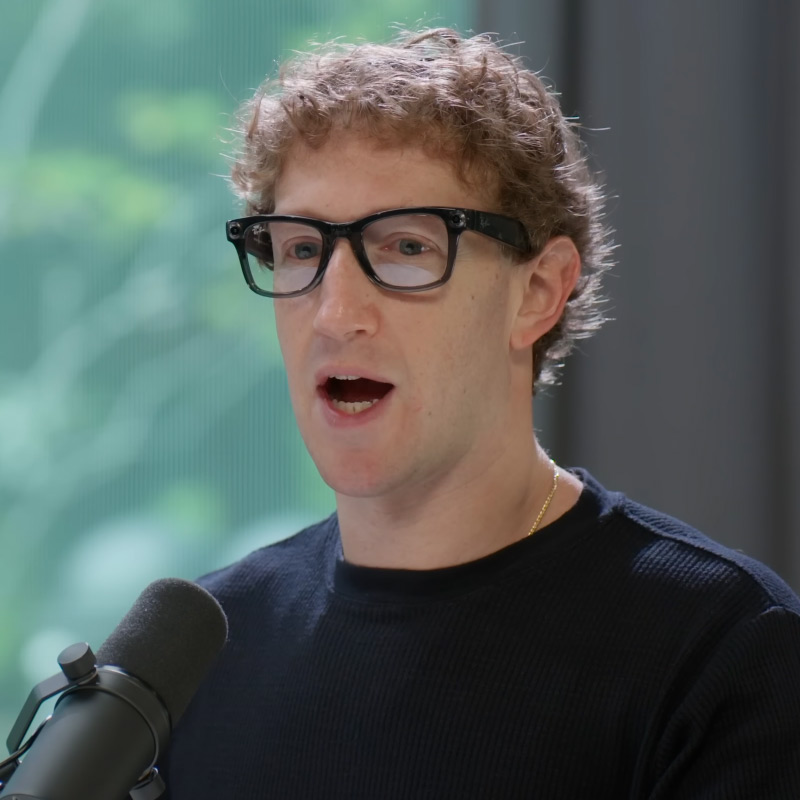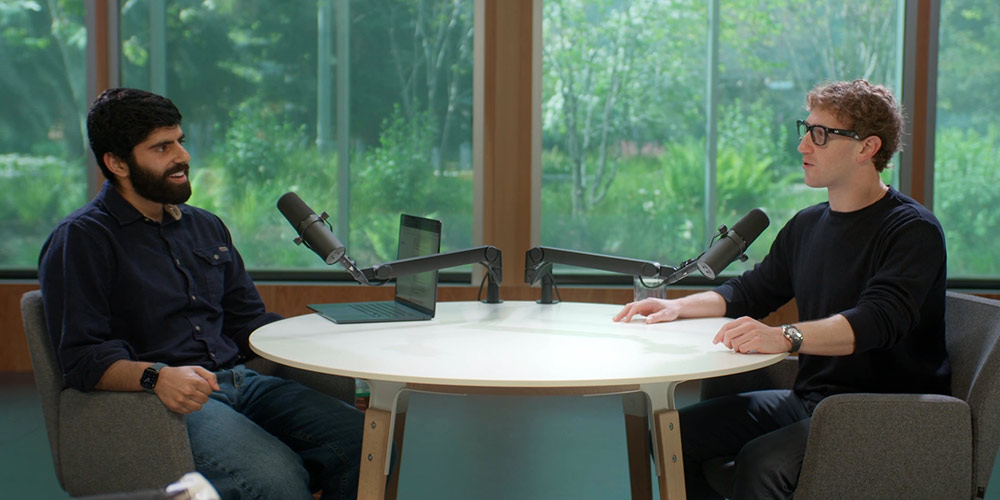Artificial intelligence, the poster child of modern technology, is poised to revolutionize the way people live, work, and interact in every aspect of life.
This is a sentiment strongly echoed in what Meta is trying to do. The company, which was born as Facebook, initially used AI for tasks like content recommendation, spam detection, and improving user experience. But over time, Meta significantly ramped up its investments in research and development, establishing dedicated AI research labs and teams, when it realized how large language models have an extreme transformative potential.
The pivotal moment in Meta AI's development was the increasing focus on large language models, culminating in the development and release of the LLaMA family of models.
In an in-depth conversation featuring Mark Zuckerberg, the CEO and founder painted a vivid picture of a future brimming with possibilities, where AI permeates everything from coding and customer service to entertainment and human connection.
And this is creating huge impacts.
And things get more interesting, at least on the cultural, social, and entertainment side.

In a podcast with Dwarkesh Patel, Zuckerberg said that:
"This isn't the 1-2 year thing of what happens when you have a super powerful software engineer. But over time, if everyone has these superhuman tools to create a ton of different stuff, you're going to get incredible diversity."
"Part of it is going to be solving hard problems: solving diseases, advancing science, developing new technology that makes our lives better."
"But I would guess that a lot of it is going to end up being cultural and social pursuits and entertainment."
"I would guess the world is going to get a lot funnier, weirder, and quirkier, the way that memes on the internet have gotten over the last 10 years."
Zuckerberg anticipates a world that will be that way in the coming years, knowing how rapid advancements in AI technology is now becoming.
He highlighted Meta's commitment to this transformative field, emphasizing his company's focus on building fast, natural, and multimodal AI that seamlessly integrates into daily life. This push towards increasingly sophisticated AI models suggests a future where AI can handle more complex tasks and understand nuances in human communication more effectively.
He even said that AI can help write 80% of codes at Meta in about a year's time.
This self-referential development cycle could dramatically accelerate the pace of innovation in the field.
But contrary to common fears about widespread job displacement, Zuckerberg believes that AI will ultimately lead to an increased demand for human workers. He reasons that by making services like customer support more economically viable, AI will enable businesses to offer more comprehensive assistance, thereby requiring more people to manage and oversee these AI-powered systems.
This perspective aligns with historical trends where technological advancements have often led to the creation of new job roles and industries, even as some existing ones are automated. The integration of AI into various sectors could unlock new levels of productivity and efficiency, potentially leading to economic growth and new opportunities for skilled workers.

In contrast to what most people probably believe, Mark Zuckerberg doesn't see himself as a villain.
While as a CEO of a for-profit company, he does have the responsibility to make Meta get more money. And as the AI race commences, it's obvious that he wishes the technology to be the next big thing, with Meta being on top.
However, on privacy perspective, under Zuckerberg's control, Meta is deploying its massive resources to make Facebook, Instagram, and WhatsApp the gates for users to use its AI chatbot.
Zuckerberg emphasizes that the chatbot can help people in their conversations, to the point that most people don't have many friends.
Zuckerberg is like pitching the idea that loneliness can be cured with some algorithmic avatars, which are supposed to unravel the social fabric that is already broken, thanks to how people are now disconnected in real life, as opposed to digital lives.
Regardless, Meta's ambition is multi-faceted. The company wants to not just use AI for "improvements" from within its ecosystem, but also in a broader context through open-source initiatives.
